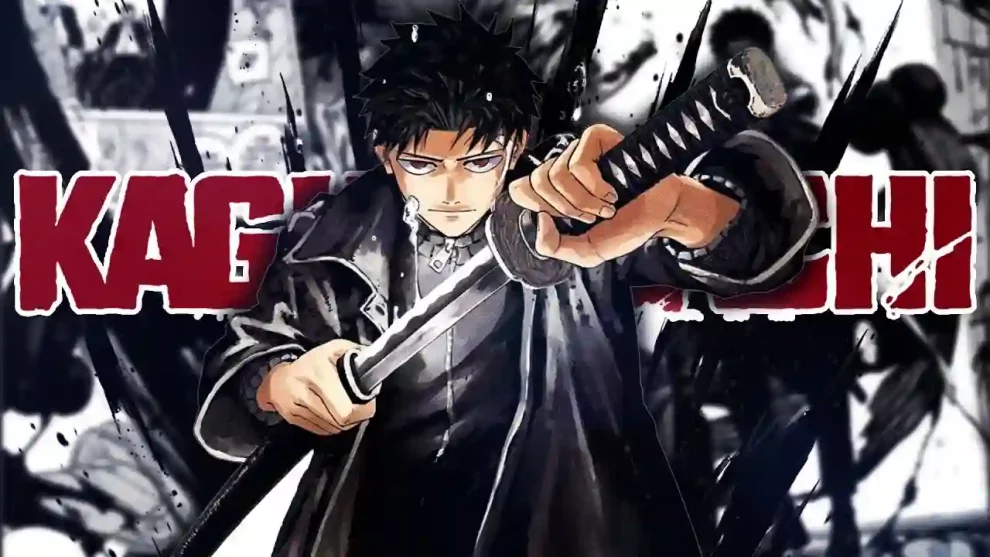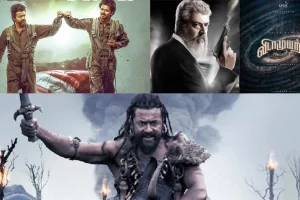Kentaro Miura’s dark fantasy masterpiece, “Berserk,” is renowned for its intricate narrative, complex characters, and stunning artwork. However, beneath the surface of this epic saga lies a profound exploration of existential themes that delve into the very essence of human existence. In this article, we will embark on a journey through the philosophical underpinnings of “Berserk,” examining how it grapples with themes of meaninglessness, the human condition, and the relentless pursuit of purpose.
The Abyss of Meaninglessness
One of the central existential themes that permeate “Berserk” is the concept of meaninglessness. The world in which the story unfolds is a bleak and unforgiving one, where violence, suffering, and betrayal are the norm. Characters like Guts and Griffith are confronted with the harsh reality that life, at its core, lacks inherent meaning or purpose.
Guts, the series’ protagonist, embodies this existential struggle. His early life is marked by trauma, violence, and survival. Raised as a mercenary and branded by a horrific destiny, Guts grapples with the concept that his existence may be devoid of any inherent purpose. This internal conflict is epitomized in his relentless pursuit of vengeance against Griffith, as he seeks to imbue his life with meaning through the pursuit of a singular goal.
Griffith, on the other hand, initially appears as a character who strives for purpose and transcendence. His ambition and charisma drive him to ascend the ranks of the Band of the Hawk and ultimately lead him to make a Faustian bargain with the God Hand. However, his pursuit of a dream eventually spirals into nihilism, as he sacrifices the lives of his comrades for his own ambition, casting aside their meaning and value.
The Eclipse, a pivotal and nightmarish event in “Berserk,” serves as a crucible of meaninglessness. It is a ritual that reveals the true nature of the world and the indifference of the supernatural forces governing it. The horrifying revelations during the Eclipse shatter the characters’ sense of purpose and plunge them into the abyss of despair.
Existential Despair and Absurdity
Existential philosophy often grapples with the concept of absurdity – the idea that life’s inherent lack of meaning and the human pursuit of meaning are inherently contradictory. “Berserk” captures this sense of absurdity through its characters’ experiences and the relentless cycle of suffering they endure.
Guts, in particular, embodies the absurd hero. He confronts a world that appears indifferent to his struggles and ambitions. His pursuit of vengeance, despite its apparent futility, is a testament to the absurdity of existence. He faces insurmountable odds and battles against supernatural forces, all the while questioning the purpose of his relentless quest.
The concept of absurdity is also mirrored in Griffith’s transformation into Femto, a member of the God Hand. His ascent to godhood results in a nihilistic perspective, as he views the world and humanity with indifference and contempt. Griffith’s rejection of the values and relationships he once cherished highlights the sense of absurdity that pervades his existence.
The Human Condition and Freedom
Existential philosophy often explores the human condition, emphasizing individual freedom and the responsibility that comes with it. “Berserk” delves into the human condition through its characters’ choices and their confrontation with the consequences of their actions.
Guts’ journey is a testament to the concept of freedom. His life is marked by violence and brutality, but he continuously exercises his agency by choosing his path and seeking vengeance. His quest for meaning and purpose, though driven by the trauma of his past, exemplifies the human capacity to make choices in the face of adversity.
The concept of freedom is also exemplified in the character of Skull Knight, a mysterious and enigmatic figure in “Berserk.” Skull Knight serves as a reminder that individuals have the power to challenge fate and transcend the limitations imposed upon them. His role in the narrative underscores the importance of choice and the potential for individuals to shape their destinies.
Camusian Absurdism
The philosophical ideas explored in “Berserk” share similarities with the philosophy of Albert Camus, particularly his concept of the absurd. Camusian absurdism posits that human existence is marked by a fundamental conflict between the human desire for meaning and the apparent meaninglessness of the universe.
Guts’ relentless pursuit of vengeance and his struggle against overwhelming odds align with the Camusian notion of the absurd hero. He persists in the face of absurdity, driven by his own sense of purpose, even when the world appears indifferent to his suffering.
Griffith’s transformation into Femto and his eventual nihilism also resonate with Camusian themes. His pursuit of a dream, which initially holds great meaning for him, ultimately leads to a nihilistic rejection of the values he once cherished. This rejection echoes Camus’s exploration of the absurdity of existence.
Conclusion
“Berserk” is not merely a dark fantasy saga but a profound exploration of existential themes that plumb the depths of the human experience. Kentaro Miura’s storytelling delves into the abyss of meaninglessness, the absurdity of existence, and the human condition. Through the trials and tribulations of characters like Guts and Griffith, “Berserk” challenges readers to confront the existential dilemmas that define our lives.
As we journey through the world of “Berserk,” we are compelled to ponder the relentless pursuit of meaning and purpose in a world that often appears indifferent and absurd. Miura’s masterful narrative and richly detailed artwork invite us to grapple with the profound philosophical questions that lie at the heart of the series. In doing so, “Berserk” transcends the boundaries of a traditional dark fantasy and emerges as a thought-provoking exploration of the human soul and the quest for meaning in a world fraught with existential despair.
















Add Comment